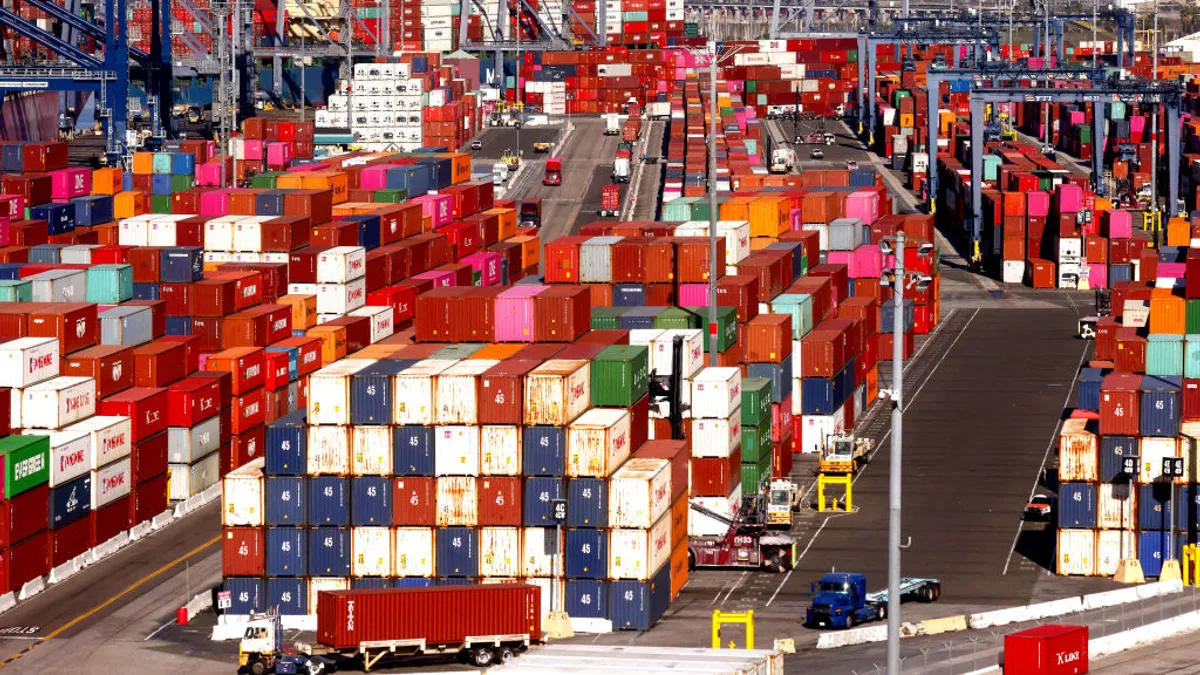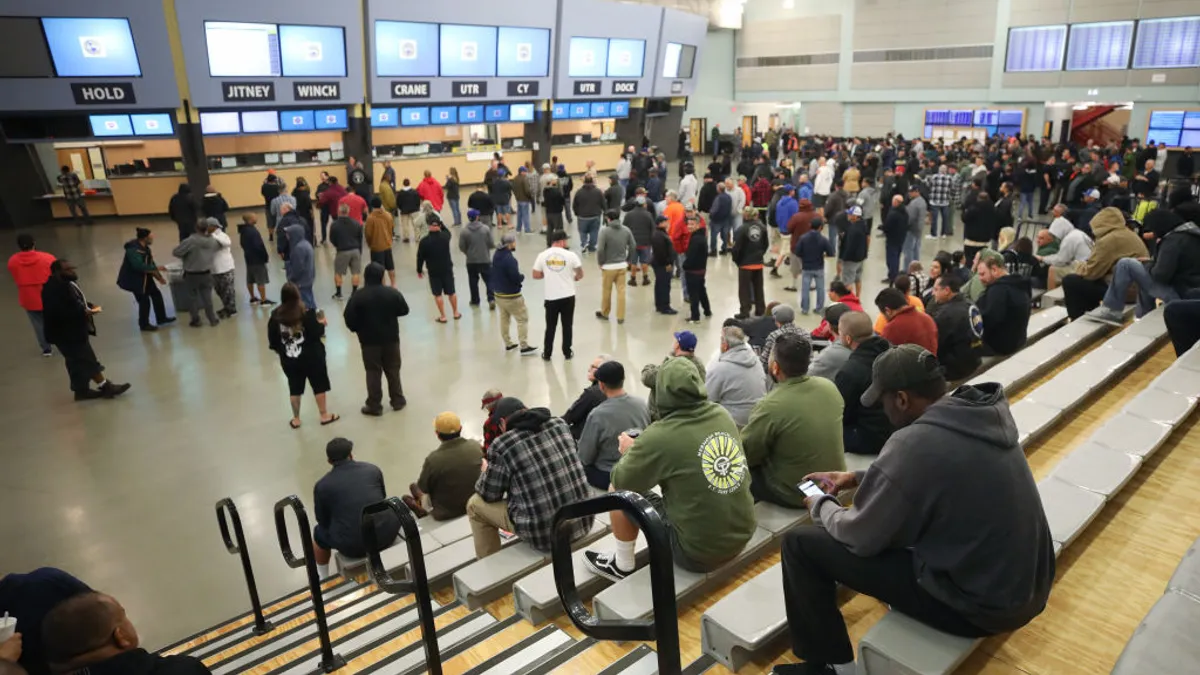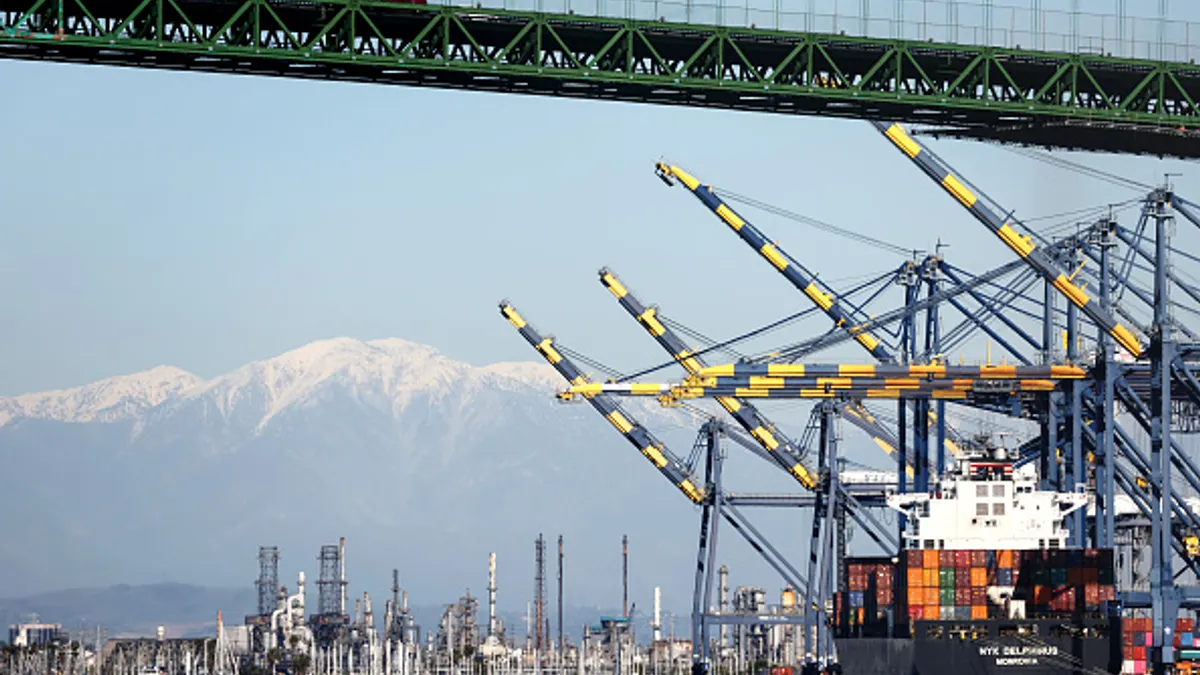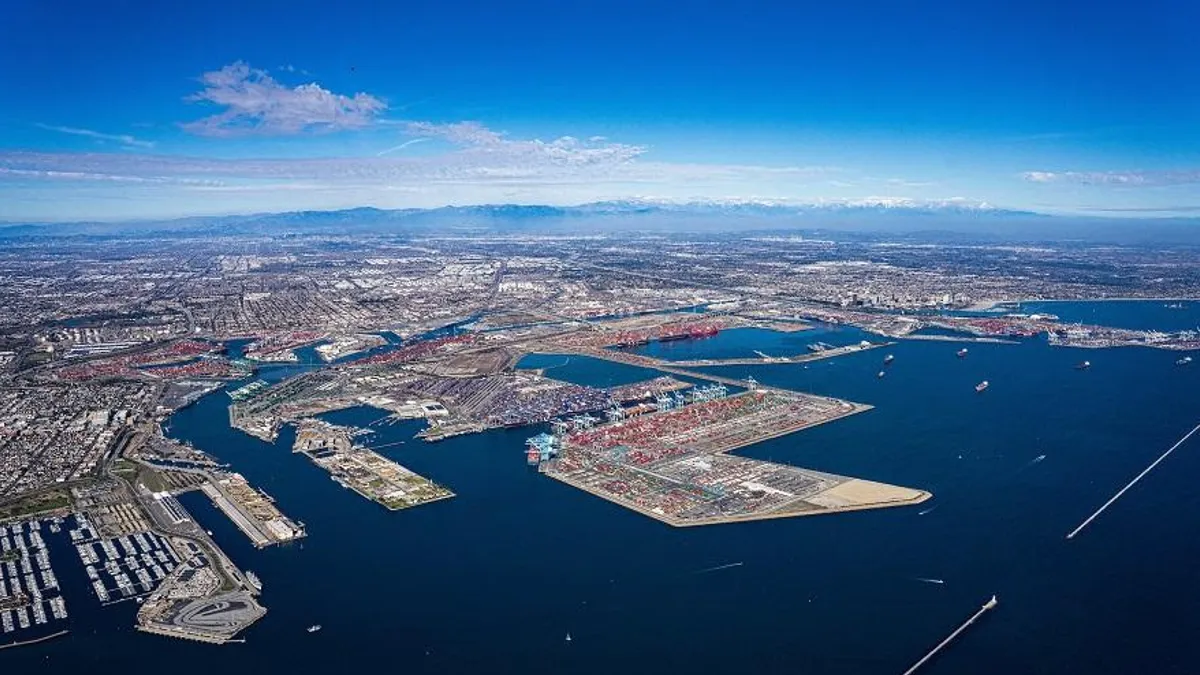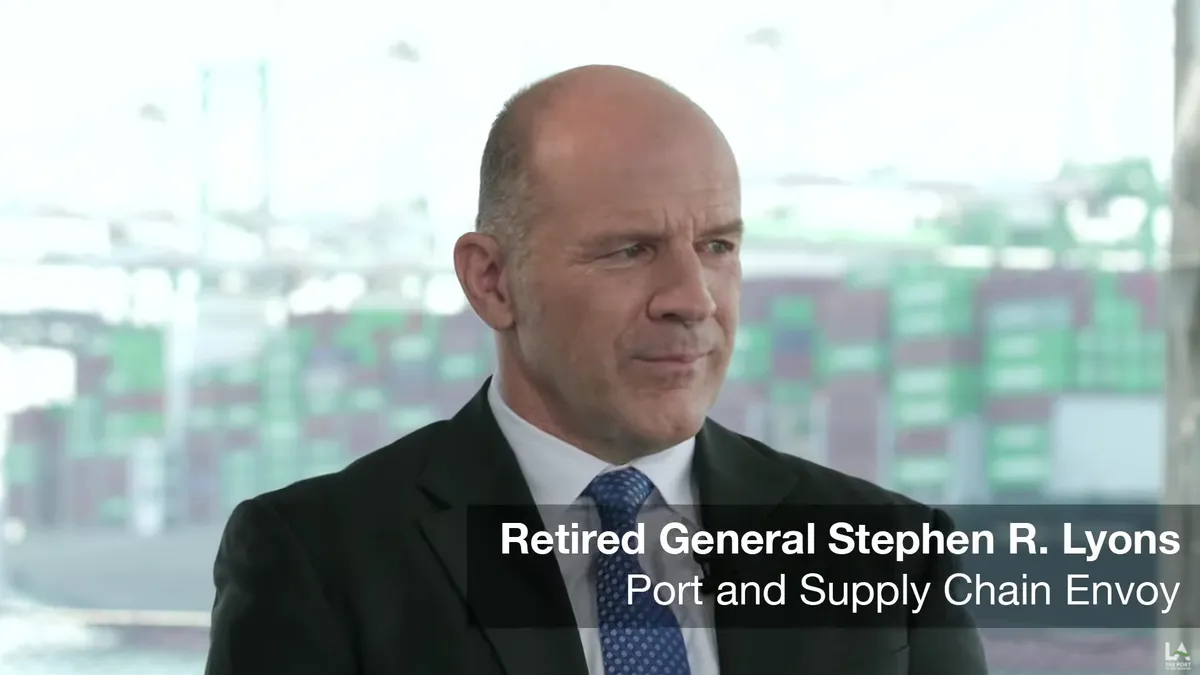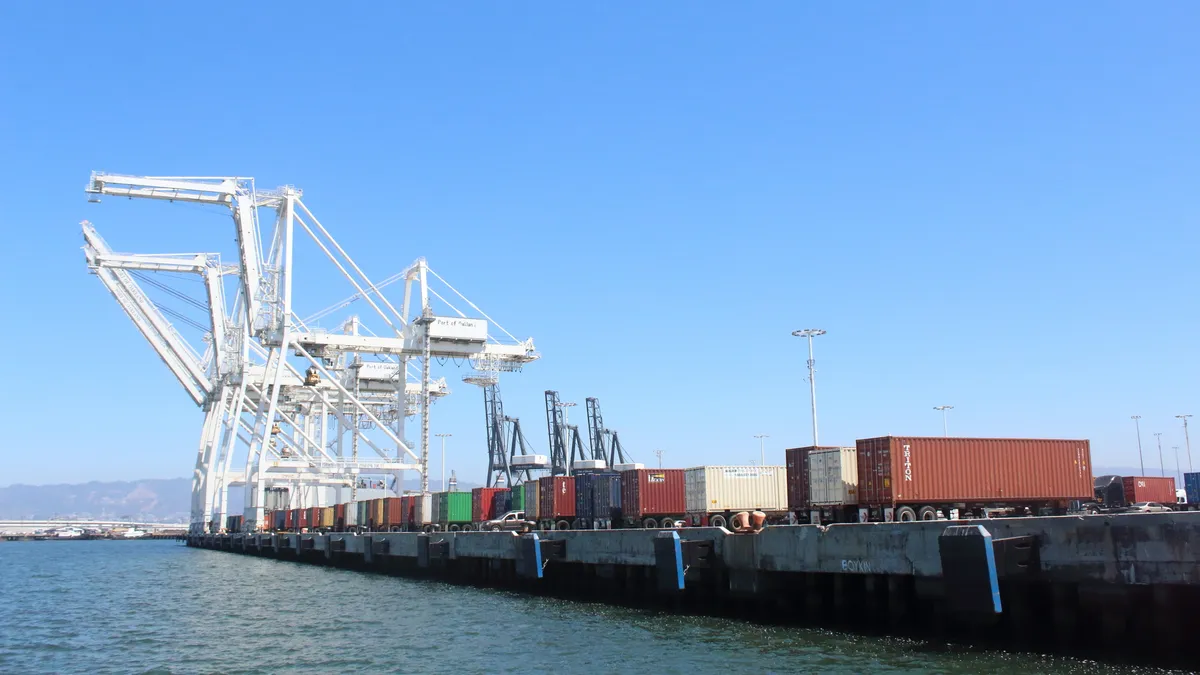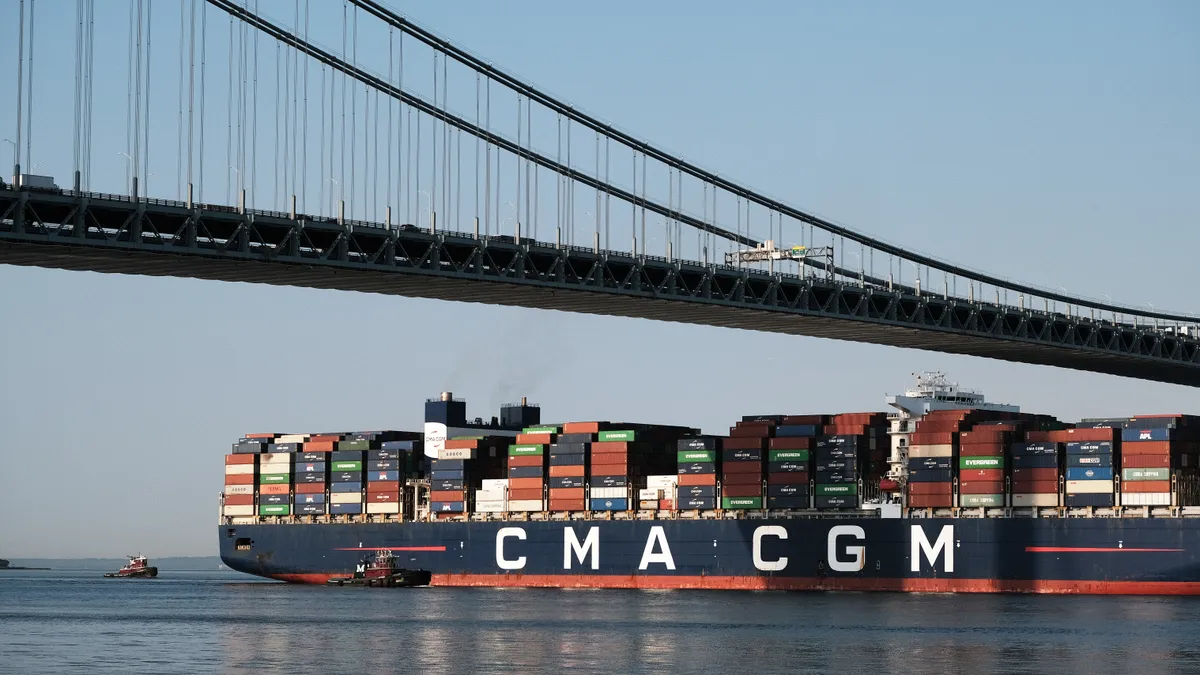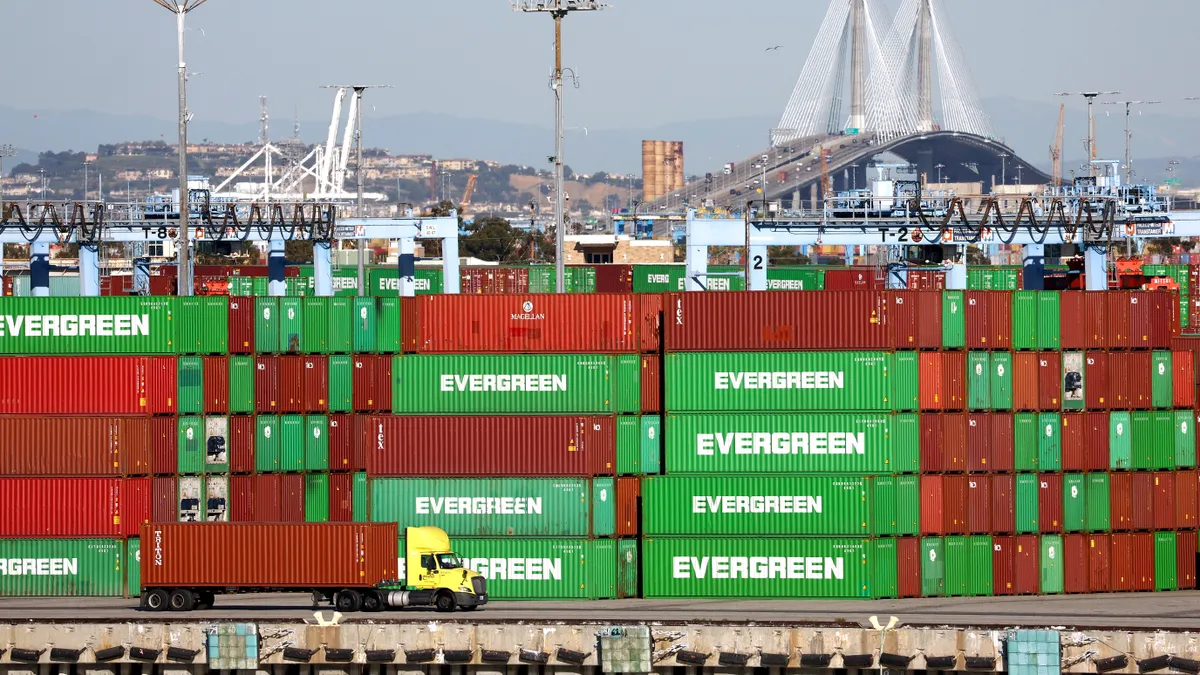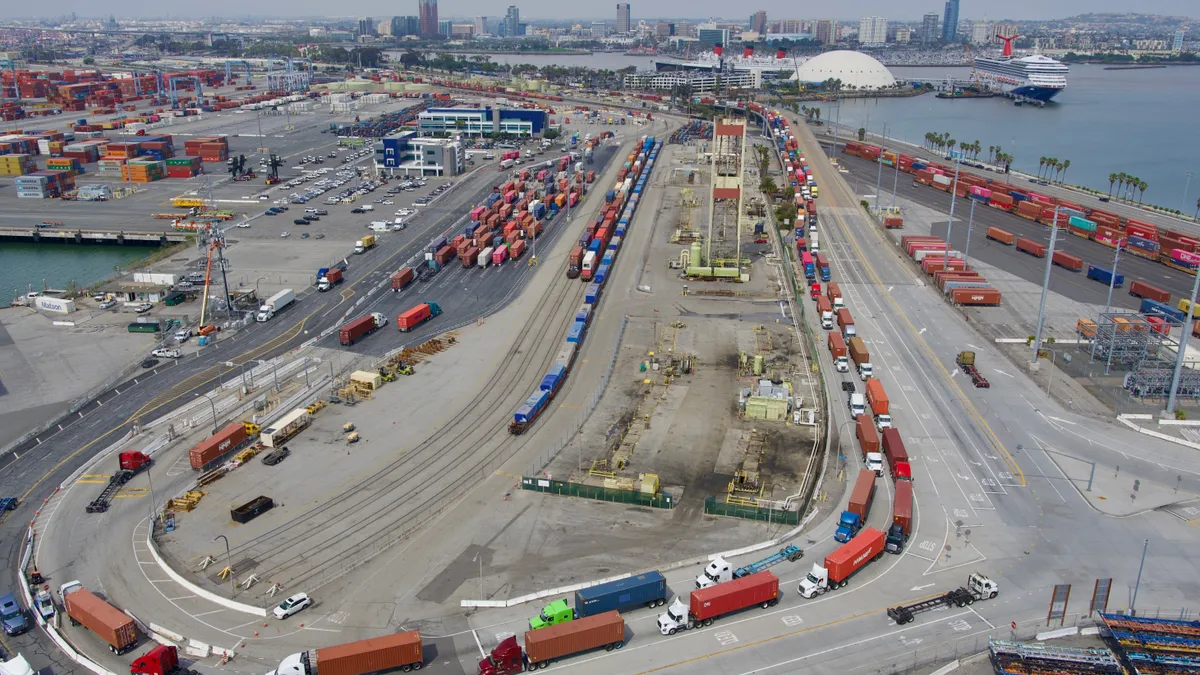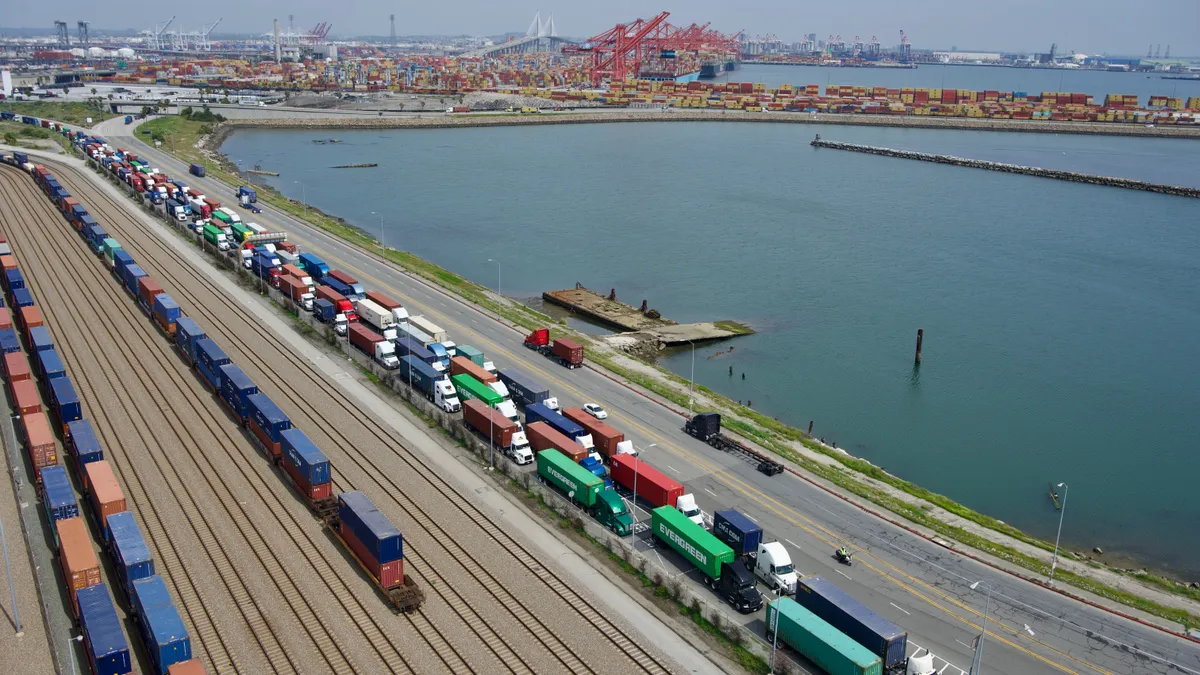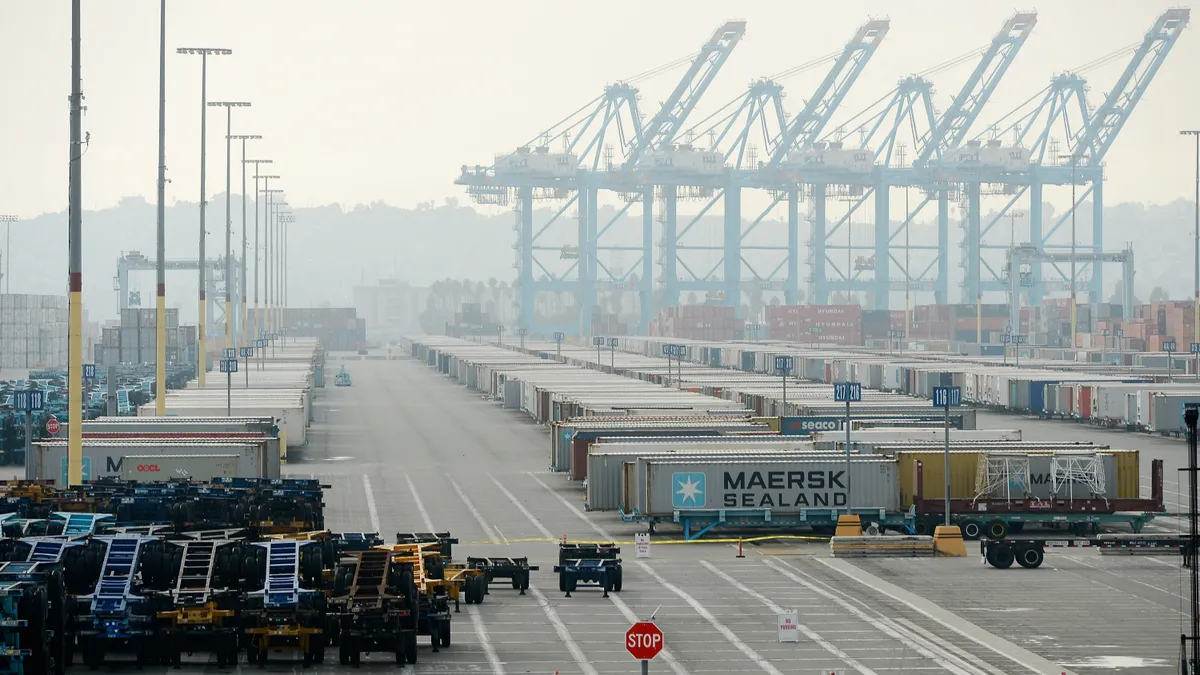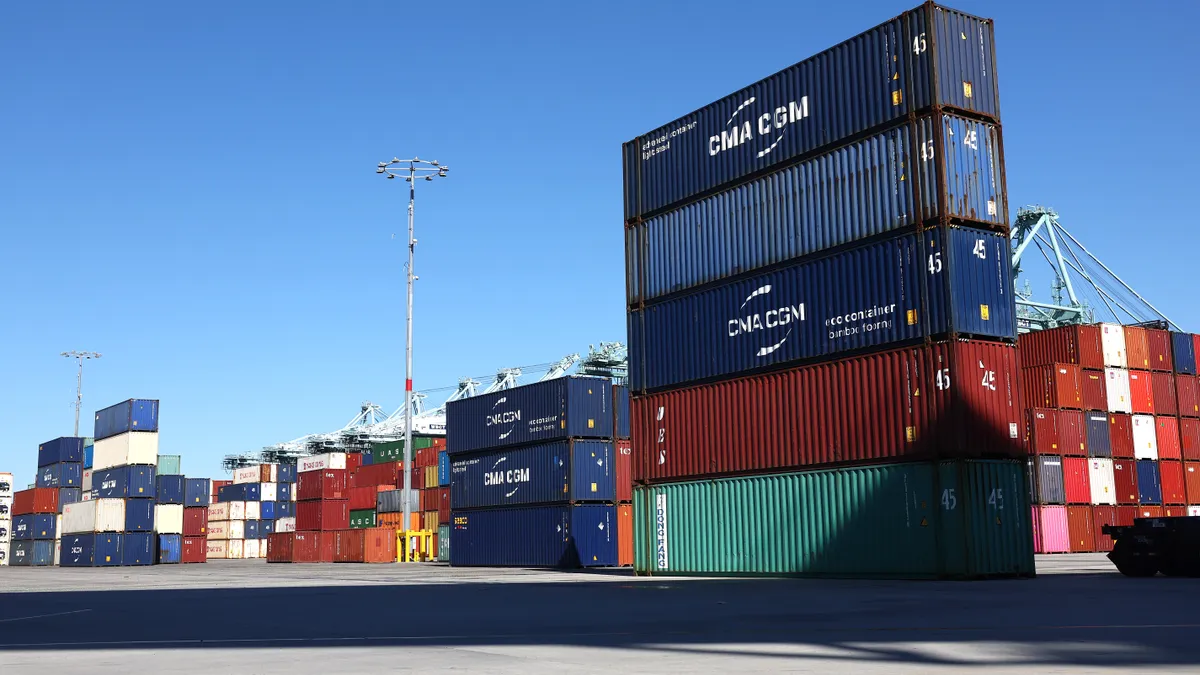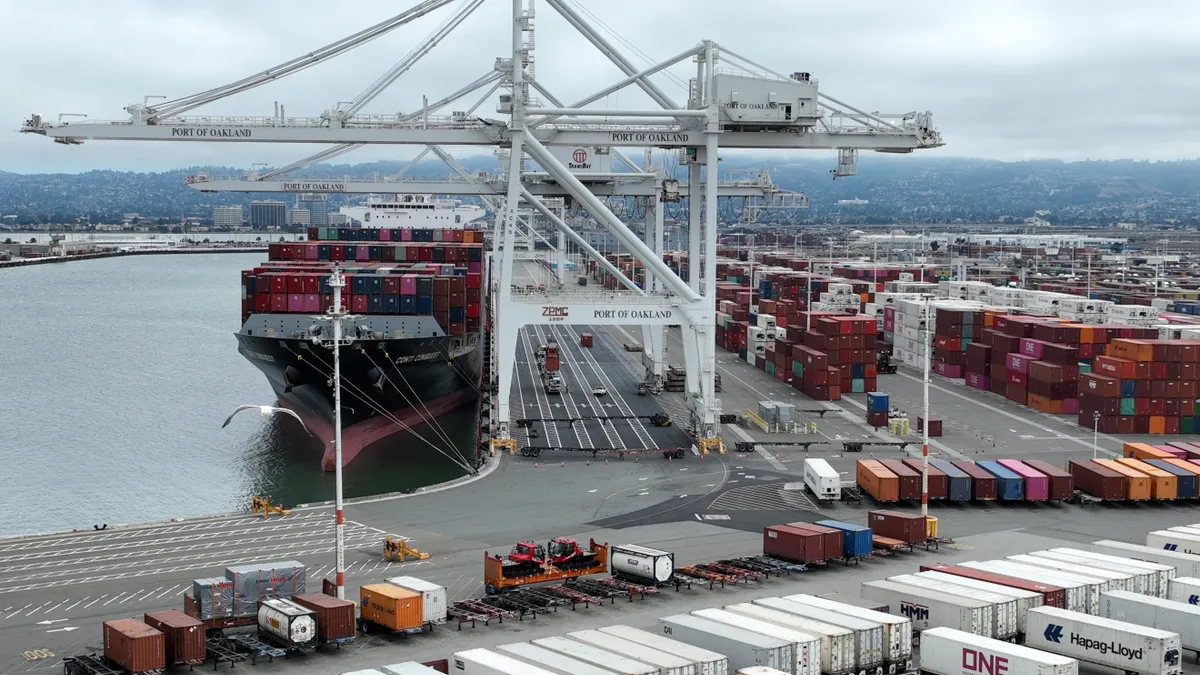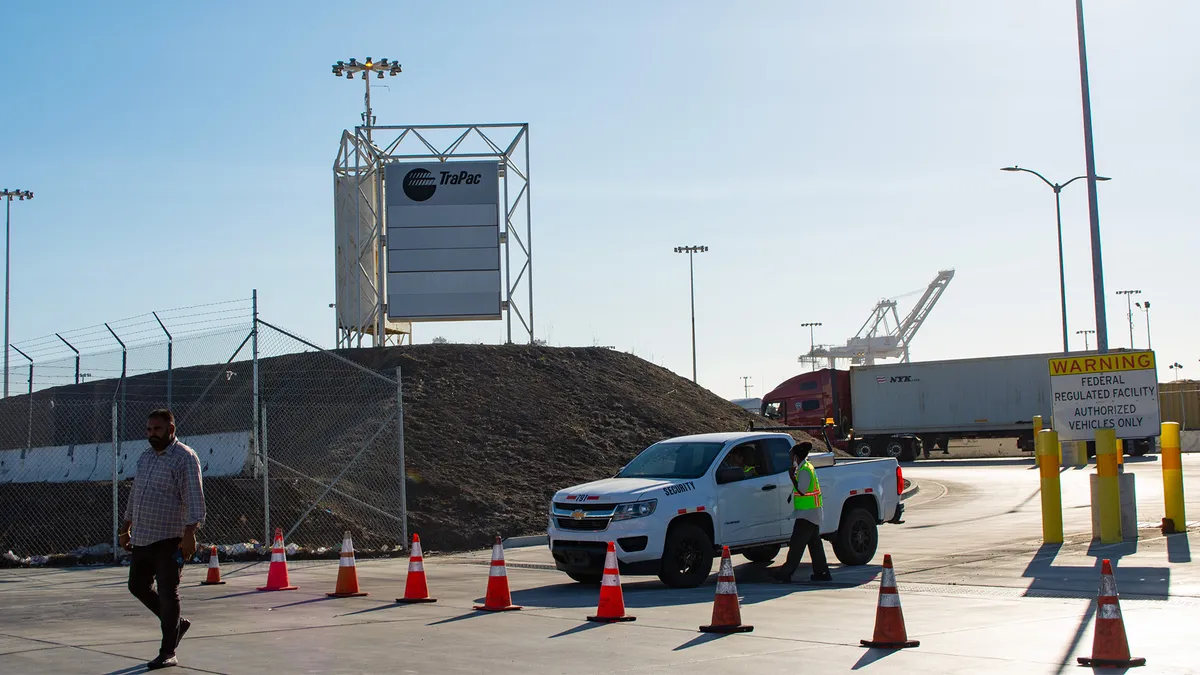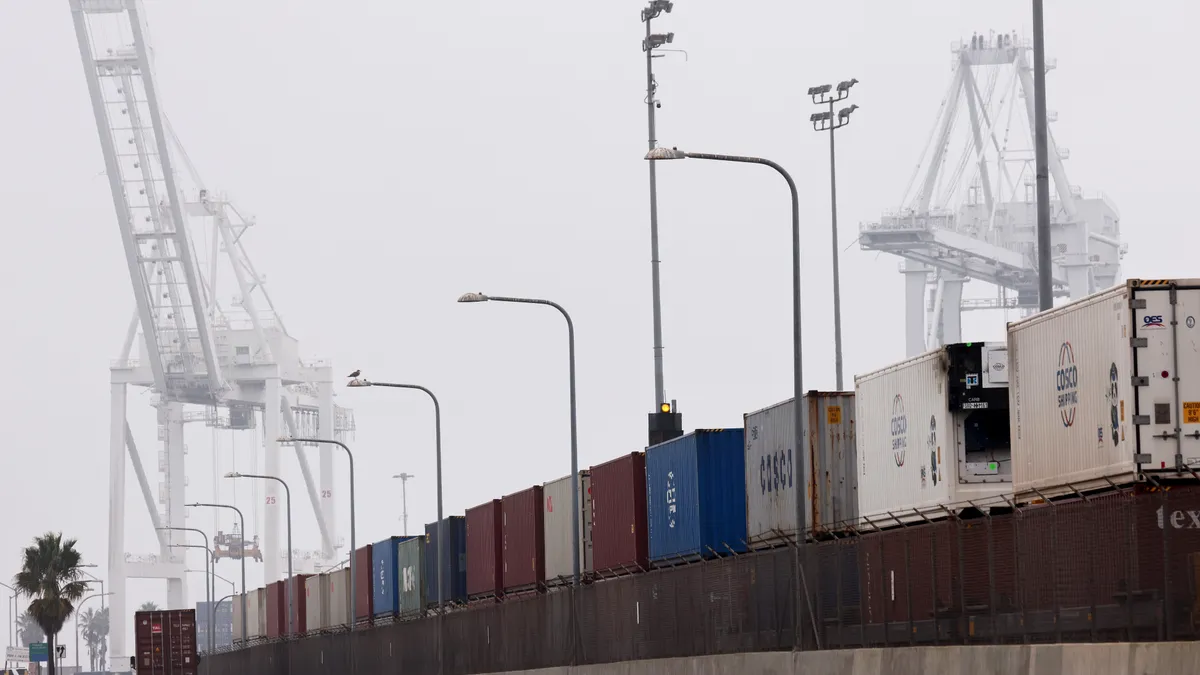Dive Brief:
- Union dockworkers at West Coast shipping ports failed to reach a labor agreement with cargo carriers and terminal operators on Friday, but both sides committed that “normal operations will continue at the ports,” according to a joint statement.
- The International Longshore & Warehouse Union’s existing contract with the Pacific Maritime Association, which covers more than 22,000 workers at 29 ports, expired at 5 p.m. The two groups pledged that “cargo will keep moving” until an agreement is reached.
- “Both sides understand the strategic importance of the ports to the local, regional and US economies, and are mindful of the need to finalize a new coast-wide contract as soon as possible to ensure continuing confidence in the West Coast,” according to the statement.
Dive Insight:
Businesses had been holding their breath in anticipation of a potential dockworker strike, with shippers warning of the potential for higher costs and fresh delays. Container line Zim Integrated Shipping Services said in May that more businesses had shifted cargo to East Coast ports to avoid disruption.
“It is a threat and a potential risk to the current existing supply chain disruption,” said CFO Xavier Destriau in an earnings call. “We've seen some of our customers be directing some of their cargo already in anticipation of what could be the outcome of the discussions.”
Union and port negotiators had said earlier this month in a rare joint statement that they weren’t planning on a work stoppage or lockout, even if an agreement wasn’t reached by July 1. The two groups have also personally expressed their commitment to reach a deal to President Joe Biden.
Still, while no strike is planned, a delay in negotiations may lead to informal work slowdowns that could threaten the flow of cargo, according to Peter Tirschwell, S&P Global Market Intelligence vice president for maritime, trade and supply chain. A stalemate in negotiations in 2014 led to a labor slowdown that at times brought ports to a near standstill, although there was no formal strike.
“The reason that shippers are concerned is because of experience,” Tirschwell said. “It's as much what they've experienced in the past as what is happening right now.”
Automation had emerged as one of the main sticking points in current contract negotiations. The ILWU underwrote a study released June 15 that said automation efforts at the San Pedro ports eliminated 572 full time-equivalent jobs annually at Long Beach Container Terminal and TraPac at the Port of Los Angeles. The report also questioned whether automation leads to lower costs and greater efficiency, as ports have claimed.
“The San Pedro Ports should withhold approval of plans to automate terminals unless it can be demonstrated that the automation will produce net benefits for California workers,” according to one of the recommendations from the study.
The Pacific Maritime Association released its own study prior to the start of negotiations saying that automation has actually increased the number of ILWU jobs and opportunities. The group also noted throughput of Twenty-Foot Equivalent Units per acre was 44% higher in automated terminals.
With the current contract expired, clauses not to strike or invoke lockouts are now void. The arbitration system that rules over local disputes also goes away, opening the door for local unions to potentially “take matters into their own hands” and pursue informal action such as work slowdowns, according to Tirschwell.
The North American Meat Institute estimated that during the work slowdown in 2014 and 2015, meat and poultry companies faced excess charges of $40 million a week on top of initial losses that exceeded $50 million, according to a fact sheet from the time. Exporters had to pay to pull containers out of terminals and ship by air, and businesses were on the hook for demurrage charges for each day a container sat at the terminal.
With the prospect of higher costs and lengthy delays, shippers are now taking more proactive steps to avoid any fallout from a contentious negotiation.
“There was too much writing on the wall here that would lead any logistics director to say, ‘We're not taking any chances,’” Tirschwell said.
Editor’s note: This story has been updated following the expiration of the contract.



